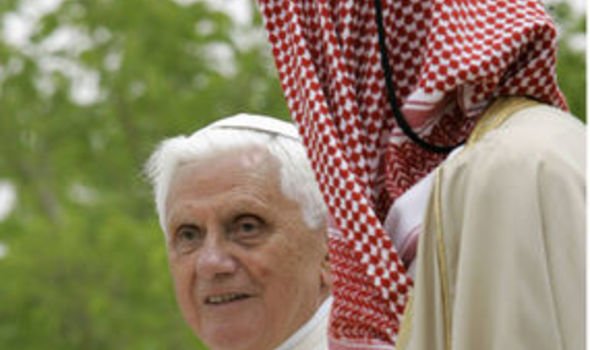 |
| ||
Wednesday 27 May 2009
Monday 25 May 2009
Palestinian Students Who Are Barred From Entering Israel Can Appeal, Israeli Court Says
Daily News Blog, May 25, 2009
Jerusalem — In a hearing here today on military restrictions on Palestinian students who wish to study at Israeli universities, Israel’s Supreme Court invited students who are denied entry permits to appeal to the Israeli courts.
The hearing was held on a petition related to a case that was brought in 2006 by a Palestinian, Sawsan Salameh, and backed by the human-rights group Gisha. Ms. Salameh had been accepted as a doctoral student in chemistry at the Hebrew University of Jerusalem in January 2006 but had been unable to attend until late that year for lack of military permission to enter Israel.
In an earlier ruling in the case, the court had asked the state to replace the sweeping restrictions then in place with more specific criteria for allowing students to enter Israel. Instead of easing the restrictions, however, the state made them even harsher, Gisha contends. Among other conditions, the new restrictions introduced an arbitrary quota on the number of Palestinian students who could enter each year, Sari Bashi, director of Gisha, told The Chronicle.
Today’s hearing was held at Gisha’s request. While the court declined to take a stand on the restrictions themselves, it did emphasize that students who were denied entry had a right to appeal. The ruling also dismissed Ms. Salameh’s petition, since she has been allowed to continue her studies at the Hebrew University.
Alon Harel, a professor at the Hebrew University who asked to join the petition along with four other professors, said in a statement on Gisha’s Web site that Israeli universities “are being forcibly prevented from accepting students who can make a decidedly valuable contribution to higher education in Israel. I call upon the court and the defense establishment to respect academic freedom. The decision whether or not to accept a student needs to be the exclusive decision of the university, while the military should be limited to performing a security check.” —Matthew Kalman
Wednesday 13 May 2009
Israel Detains 2 From Bethlehem U. Who Sought to Attend Meeting With Pope
Daily News Blog, May 13, 2009
Jerusalem — Two Bethlehem University faculty members were detained for questioning on Monday while on their way to participate in an interfaith conference here with Pope Benedict XVI, university officials told the Ma’an News Agency.
According to the officials, the two men were held after being denied entry to Jerusalem by Israeli authorities. Delegates to the conference included faculty members from the university, university alumni, and natives of the Bethlehem area of the West Bank.
Israeli authorities did not explain why the men had been barred, and the university said their experience was typical for its students and faculty and staff members, “many of whom navigate a maze of checkpoints, soldiers, and other structures of military occupation simply to be present on campus.”
Despite its diminished delegation at the conference, Bethlehem University received a special mention by the pope, who is visiting the Middle East. Praising local efforts at interfaith dialogue, Benedict noted the university’s “outstanding achievements” as examples of the “belief that our duty before God is expressed not only in our worship but also in our love and concern for society .. and for all who live in this land.” —Matthew Kalman
http://matthewkalman.blogspot.com/Sunday 10 May 2009
POPE'S 'COMPLEX' MISSION
 Visit: Pope Benedict is going to Israel
Visit: Pope Benedict is going to IsraelSUNDAY EXPRESS, May 10, 2009
By Matthew Kalman
POPE Benedict arrives in Israel tomorrow on a visit intended to mend fences with both Muslims and Jews amid efforts to reverse the plummeting numbers of Christians in the Holy Land.
Vatican spokesman Rev Frederico Lombardi described the Pope’s “very important and very complex” pilgrimage this week as “an act of hope and faith toward peace and reconciliation”.
Muslims have still not forgiven Pope Benedict for a speech he gave at Regensburg in 2006 in which he quoted a medieval pope who appeared to describe Islam as violent and irrational.
In Jordan, where he arrived on Friday, the Pope faced a chorus of disapproval from Islamic leaders, undermining the hopes of King Abdullah II that his visit would help rekindle Jordan’s tourism industry.
“The present Vatican Pope is the one who issued severe insults to Islam and did not offer any apology to the Muslims,” said Zaki Bani Rusheid, head of the Jordanian Islamic Action Front, the political arm of the Muslim Brotherhood.
“What is needed from the Pope is to have the courage to apologize,” Bani Rusheid said.
The Pope has expressed regret for misunderstandings over Regensburg but not for the speech itself.
Jordanian Islamists also condemned a planned visit to Yad Vashem, the Jerusalem memorial to Holocaust victims, even though Pope Benedict will also visit a refugee camp in Bethlehem.
Palestinian Christians, who feel caught between Jews and Muslims struggling for control of the Holy Land, have expressed delight that the Pope is coming.
But a study published this week shows the number of Christians in Jerusalem has fallen from 30,000 in 1946 to just 14,000.



